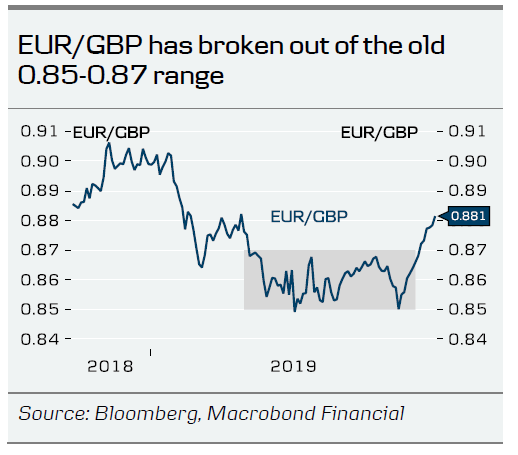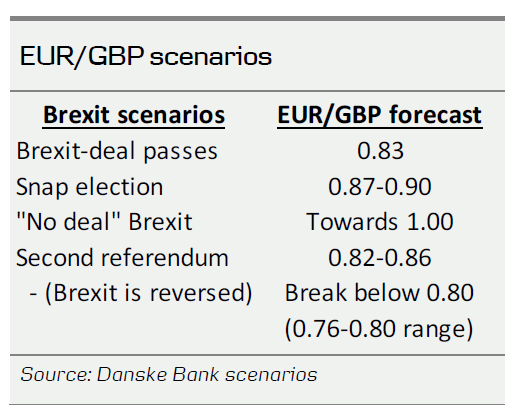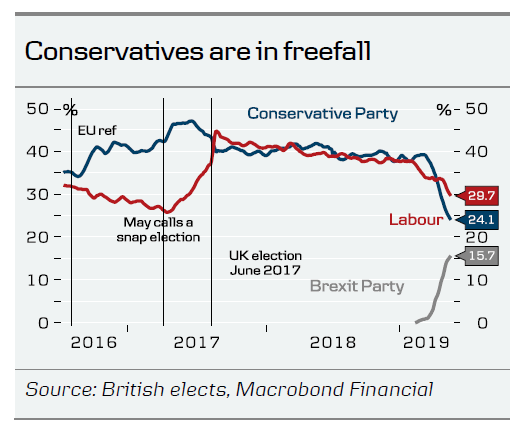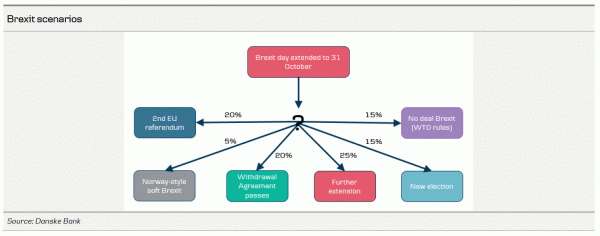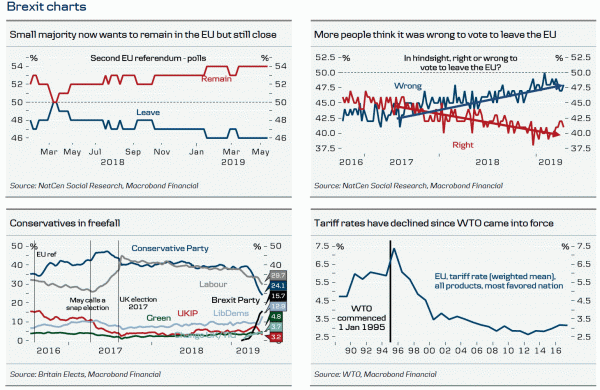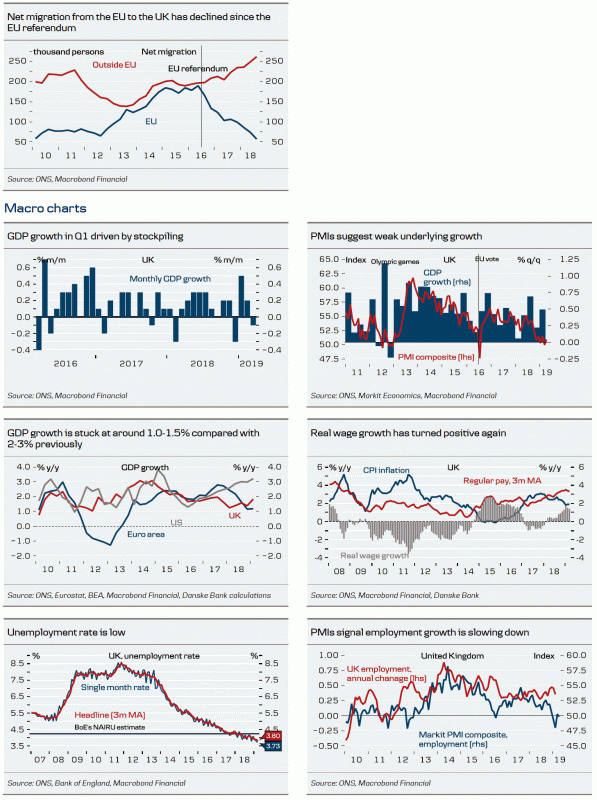Key takeaways
- Brexit has returned to the headlines, as Theresa May’s premiership is coming to an end and cross-party talks have broken down.
- A new (pro-Brexit) Prime Minister would not change the arithmetic in the House of Commons. It is difficult to predict what is going to happen, especially looking beyond the near term.
- Our base case is that a further Brexit extension beyond 31 October may be needed given the new Prime Minister will need time to settle but this is not a highconviction call.
- The GBP has weakened, which is fair given the uncertainty and that the likelihood of some of the GBP negative scenarios (e.g. no-deal Brexit) has risen.
- Near term, we do not expect a convergence towards one of the many Brexit outcomes and, hence, we expect very limited further weakness in the GBP. Rather, from the current level, small changes in the perception of the possibility of a softer Brexit could cause a non-linear reaction in favour of GBP strength.
New Prime Minister soon, same arithmetic
It feels like a long time since April, when the Brexit deadline was delayed by six months to 31 October. Back then we argued that markets would start to focus on other things again, as the imminent fear of the UK crashing out would diminish and the cross-party talks would be unfruitful. Both predictions were right at the time but now Brexit is back in the spotlight, as Theresa May’s premiership is coming to an end. In that sense, we consider the recent GBP weakness is justified (EUR/GBP has broken the old 0.85-0.87 range and is now trading at 0.88).
As we argued in April, a bad local election (held on 2 May) and/or bad European elections (voting is today) could be the catalyst for the Conservatives to force out Prime Minister Theresa May. This is very much what is happening right now, after the Conservatives suffered a heavy defeat in the local elections, losing more than 1,300 seats. Polls show that The Conservative Party may come in as number five in today’s European Elections and one YouGov poll shows the Conservatives may get as few as 7% of the votes cast.
We do not have much faith in Prime Minister Theresa May’s fourth attempt to get her deal through Parliament and it is not unlikely it will be pulled to avoid another humiliating defeat for The Conservative Party.
Instead, the uncertainty is what happens after Theresa May. Near term, she is likely to stay as a caretaker Prime Minister until the party finds a new leader. The process of finding a new party leader could happen before the UK parliamentary summer recess but, in our view, it is likely that a new leader will not be found before September
The problem for the future new Prime Minister is that the arithmetic in the House of Commons will be unchanged. The main headache has been, and still is, that there is no majority for anything and party loyalty/discipline is low. A more pro-Brexit Conservative leader would probably increase the chance of a no-deal scenario but the small majority in the House of Commons is likely continue to do as much as it can to avoid this. One attempt could be to make it illegal for the Prime Minister to pursue a no-deal Brexit. Another could be for the moderate Conservatives to join forces with the opposition to call for a general election.
A general election could solve the deadlock but the Conservatives would risk losing power to Labour or The Brexit Party (the Conservatives are in freefall [see chart on the previous page], having lost more than 15pp support in two months). A new Conservative party leader also risks splitting the party in two if he/she moves the party in a more pro- Brexit direction, complicating things further. Near term, we do not expect a convergence towards one of the many Brexit outcomes and, hence, expect very limited further weakness in the GBP.
If we are right that the party does not find a new leader until September and, given the party conference season takes place in September/October, it does not leave much time before the new cliff-edge date of 31 October. In our view, this means there is still a high probability that the deadline will be pushed somewhat further out, so the new Prime Minister can settle (potentially giving the UK time to hold a general election if needed). The problem is also that the EU is probably not going to change its current stance that the only way to leave the EU in an orderly way is to pass the Withdrawal Agreement.
Looking at the endgame, uncertainty remains very high right now and, as we highlighted in April, it is difficult to predict what will happen. Therefore, we are still more or less happy with our old ‘game tree’, although the likelihood of no deal has probably increased.

